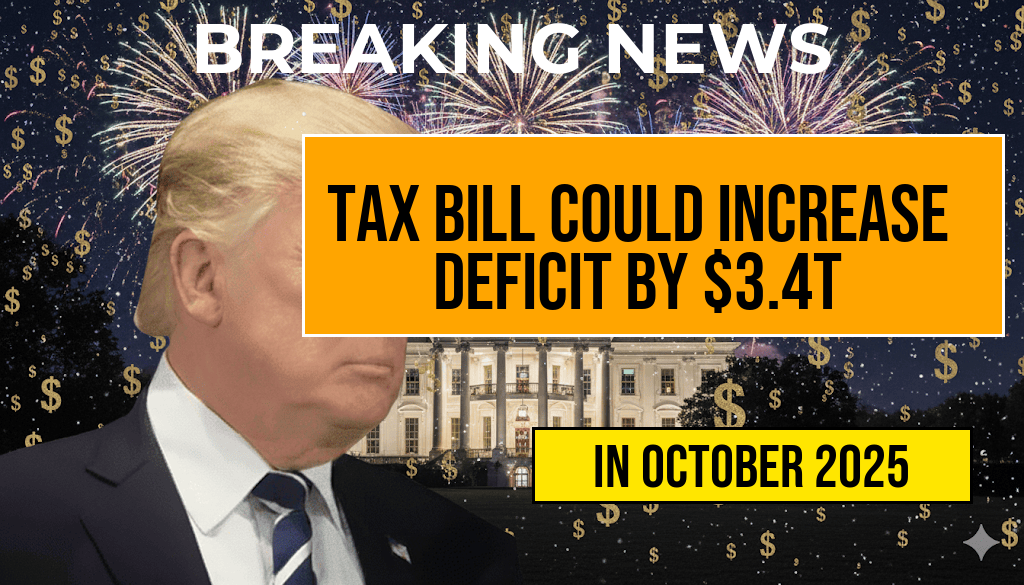Taxpayers nationwide are facing mounting concerns over the proposed legislation dubbed the “One Big Beautiful Bill”, which critics assert could balloon the federal deficit by an estimated $3.4 trillion. The bill, currently under debate in Congress, claims to streamline multiple policies into a single package aimed at economic growth. However, financial analysts and budget experts warn that the fiscal implications could be far more severe than proponents admit, potentially setting back fiscal stability for years to come. As policymakers grapple with balancing legislative priorities, citizens and economists alike are scrutinizing the bill’s projected impact on national debt and long-term sustainability.
Understanding the Scope of the Bill
What Does the Bill Include?
The “One Big Beautiful Bill” encompasses a broad spectrum of policy changes, including significant tax cuts, increased spending on infrastructure, and alterations to social programs. Supporters argue that the comprehensive approach aims to stimulate economic growth by reducing tax burdens on corporations and individuals, fostering job creation, and modernizing critical public services.
- Tax reductions for corporations and high-income earners
- Expanded investment in infrastructure projects
- Revisions to social safety net programs
- Incentives for renewable energy and technological innovation
Projected Economic Benefits
Proponents contend that the bill’s provisions could lead to increased GDP growth, higher employment rates, and a more competitive global economy. According to some estimates from supporters, the bill could generate an additional $1.5 trillion in economic activity over the next decade. However, these projections are heavily debated among economists, with many emphasizing the importance of scrutinizing the bill’s fiscal impact.
Fiscal Concerns and the Rising Deficit
Why Experts Warn About the Rising Deficit
Critics highlight that the bill’s combination of tax cuts and increased spending is expected to significantly widen the federal deficit. Congressional Budget Office (CBO) analyses suggest that the legislation could increase the deficit by approximately $3.4 trillion over ten years, largely due to reduced revenue and elevated expenditure commitments. This surge in the deficit raises alarms about mounting national debt, which currently exceeds $31 trillion and poses risks to economic stability.
| Component | Estimated Impact (10-year) |
|---|---|
| Tax Cuts | -$2.1 trillion |
| Increased Spending | $1.3 trillion |
| Net Effect | $3.4 trillion increase in deficit |
Potential Long-term Consequences
If enacted as currently drafted, the bill could exacerbate national debt levels, potentially leading to higher interest rates, reduced fiscal flexibility, and increased borrowing costs. Economists warn that an expanding deficit could also crowd out private investment and limit government capacity to respond to future crises. The Congressional Budget Office has repeatedly emphasized the importance of balancing growth initiatives with fiscal responsibility, warning that unchecked deficits could undermine economic resilience.
Political Dynamics and Public Response
Legislative Challenges
The bill faces a highly contentious political environment, with opposition parties raising concerns about fiscal sustainability and long-term impacts. While some lawmakers advocate for the bill’s economic stimulus potential, others demand tighter fiscal controls and increased transparency regarding projected costs. Negotiations remain ongoing, with amendments likely as the legislation advances through Congressional committees.
Public Sentiment and Advocacy
Voter groups and advocacy organizations are actively engaging in the debate, emphasizing the need for fiscal responsibility. Consumer advocacy groups warn that the increased deficit could lead to higher taxes or reduced public services in the future. Meanwhile, industry representatives argue that the bill could catalyze economic growth if implemented prudently.
Looking Ahead
Expert Recommendations
Financial experts recommend that lawmakers carefully evaluate the bill’s long-term fiscal implications. Implementing measures such as sunset provisions for tax cuts or establishing strict budget caps could help mitigate potential negative effects. Additionally, maintaining transparency about projected costs and benefits remains crucial to fostering informed public debate.
Resources for Further Reading
Frequently Asked Questions
What is the main concern highlighted in the article about the ‘One Big Beautiful Bill’?
The primary concern is that the ‘One Big Beautiful Bill’ will significantly increase the federal deficit by approximately three point four trillion dollars.
How will the bill impact the national debt and fiscal stability?
The bill’s projected deficit increase threatens to undermine fiscal stability and could contribute to a growing national debt.
Who are the main stakeholders or groups affected by this bill?
The bill will impact taxpayers, government programs, and public services by potentially reducing revenue and increasing the fiscal deficit.
What are the potential economic consequences of this bill?
The increase in the deficit may lead to higher interest rates, decreased public investment, and long-term economic instability.
Are there any suggested actions or precautions for taxpayers regarding this bill?
Taxpayers should stay informed about legislative developments and consider consulting with financial advisors to understand potential impacts on personal finances.

Leave a Reply